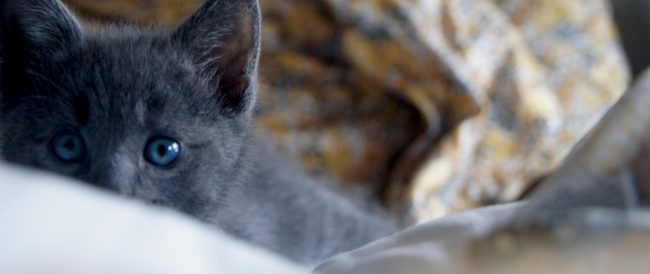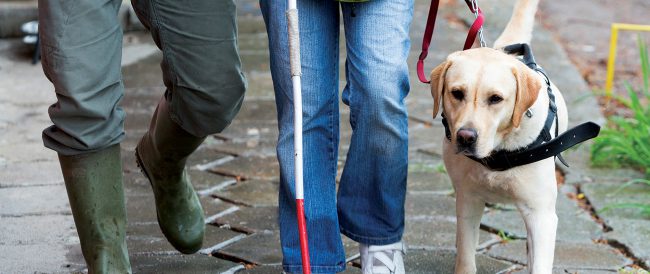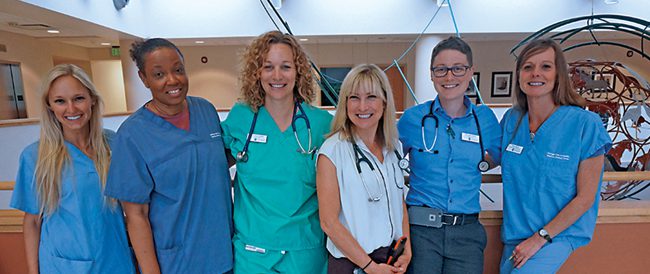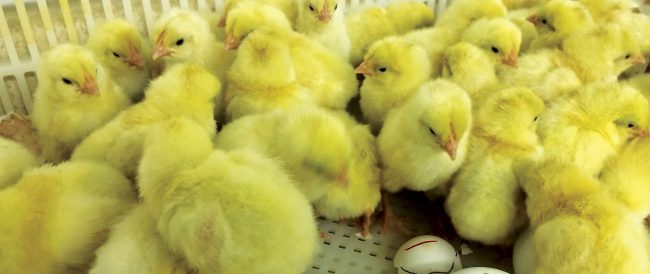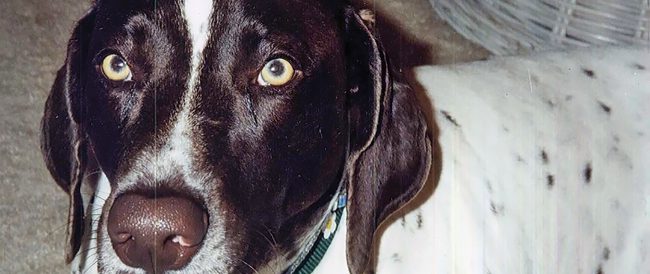 Read More
Read More
Pets are a popular choice for many people living in the United States. The American Pet Products Association estimates that 44 percent of all households have a dog and 35 percent have a cat; this does not include other companion animals like horses, pocket pets, and others.

The human-animal bond between people and their pets has developed and strengthened throughout time. Many pet owners today see their animals as members of the family and of equal importance to any other person. “Fur baby” is a term said frequently and with much devotion.
What may be less obvious are the scientifically proven health benefits to this bond including a decrease in blood pressure, cholesterol, and triglyceride levels.
“An extensive number of studies in a wide range of journals and disciplines support that interactions with pets contribute to good health and quality of life and healing from serious illnesses and conditions,” says Dr. Maria Iliopoulou, an alumna of the MSU College of Veterinary Medicine. After earning her DVM (’07), Iliopoulou focused her MS (’09) and PhD (’14) research at MSU on the human-animal bond.
“Pets can influence our emotional state, our sense of security and acceptance, and even our positive outlook on life,” Iliopoulou continues. “It has been documented that grieving children and adults turn to their pets for comfort, and that pet ownership eases the symptoms of owners’ depression and anxiety. Dog owners, for example, feel safer and less vulnerable to crime.”

Research shows that petting and interacting with companion animals can offer more relaxation and lower stress levels, and these benefits extend to people of all ages. One epidemic rising in society is loneliness, especially among the elderly population. But, numerous studies have demonstrated that residents in nursing homes are more likely to experience a sense of joy, smile, talk, and interact with others when pets are present.
“As humans, we have the need to have a purpose and to feel needed,” says Iliopoulou. “For people living alone and the elderly, pets help them feel needed and give them a reason for living.”
Animals can offer health benefits in a professional capacity, too. Several studies demonstrate how a dog’s presence increases socialization among people. Courtroom or service dogs help children and adult abuse victims testify by decreasing their anxiety and lessening sympathetic nervous system arousal. In the same vein, pets can help children develop greater empathy and higher self-esteem and increase their participation in social activities. Other service and support animals offer similar benefits by providing their owners with more autonomy.


Making a difference
While she is well-versed in the current human-animal bond research, Iliopoulou, who has pets of her own and has done rescue work with more than 4,000 dogs and cats, also experiences these health benefits herself.
“I certainly enjoy the benefits of unconditional love from my pets every day,” she says. “I believe that empathy and compassion are some of the gifts I received from my dogs, self-care and gratefulness from my cats, and the importance of freedom and companionship from my doves and canaries. However, the most important gift from these relationships is the noble purpose that animals give to my life. In a world where we are bombarded with messages of negativity, greed, and deceit, interacting with animals gives me faith that I can be the change I want to see in this world by healing, rescuing, and protecting voiceless, innocent, and open-hearted animals, one at a time.”

This relationship Iliopoulou experiences with animals is a bond to which most pet owners can relate. This bond also benefits the pets themselves, who experience a higher quality of life.
“The human-animal bond is a mutually beneficial and dynamic relationship between people and animals that is influenced by behaviors essential to the health and wellbeing of both,” says Iliopoulou. “The majority of pet owners today consider their pets to be family members. Thus, pets receive preventive care and veterinary care, they feel loved and safe, they have shelter and food, and certainly, the rescued pets receive care and rehabilitation from previous trauma, and are given a second chance.”
Giving Back

Owners get more than health benefits from the relationships they share with their pets. The human-animal bond can be one of companionship, and bring enrichment to the lives of both parties.
The late Matilda R. Wilson is one such individual to experience this relationship. She had keen interest in the wellbeing of food animals, horses, and farming. Because of this, Wilson’s estate established the Matilda R. Wilson Fund, which has given multiple gifts to Michigan State University including the MSU College of Veterinary Medicine.
The Matilda R. Wilson Pegasus Critical Care Center is a 9,000-square-foot facility at the MSU Veterinary Medical Center. Pegasus houses and isolates large animal patients with infectious diseases. This minimizes the risk of spreading disease to other animals and people while providing the most advanced critical care. Named after one of Wilson’s favorite driving ponies, Pegasus, the Center features 10 individual isolation stalls, on-site laboratory capability, and a specialized ventilation system that helps prevent the spread of infectious diseases. Video equipment enhances teaching and allows clients to observe their animals without entering the isolation stall. Additionally, Pegasus offers research opportunities for students and faculty while helping maintain the state of Michigan’s equine industry.
Wilson’s generosity does not stop there. In addition to the Pegasus Center, her estate funded the Matilda R. Wilson Endowed Chair, which supports vital research at the College. Dr. Adam Moeser is the current chair, and his research on gastrointestinal stress is making important discoveries for the future of human and animal medical treatment and prevention. The Wilson estate also funds the Matilda R. Wilson Equine Respiratory Disease Research Endowment, and supports the Meadow Brook Chair in Farm Animal Health and Wellbeing, currently held by Dr. Lorraine Sordillo. The Meadow Brook Laboratory focuses on understanding the immune system during calving, a period of time when cows are at a significantly higher risk of developing metabolic or infectious disease.




